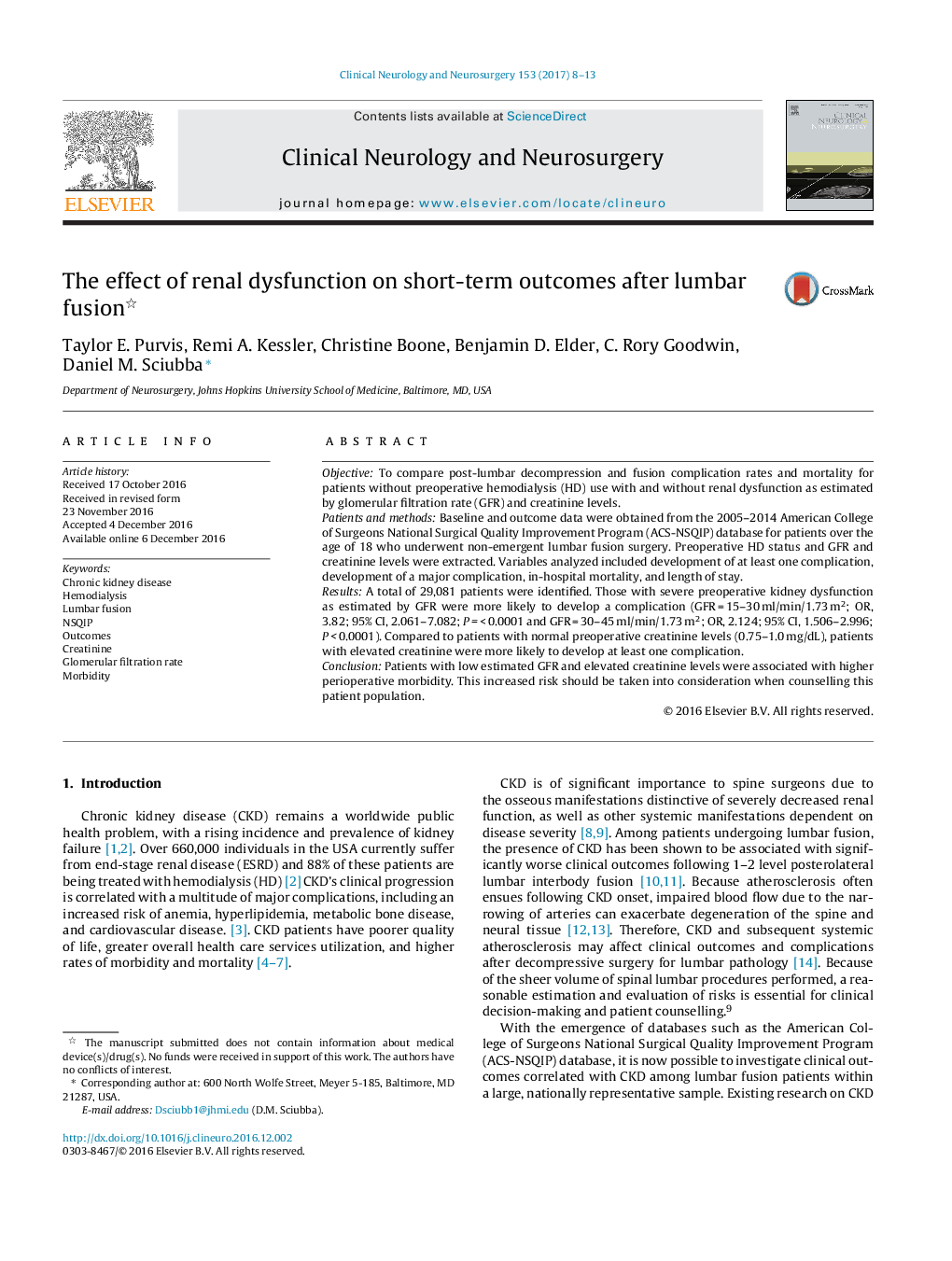| Article ID | Journal | Published Year | Pages | File Type |
|---|---|---|---|---|
| 5627157 | Clinical Neurology and Neurosurgery | 2017 | 6 Pages |
â¢Clinical outcomes for renally impaired lumbar fusion patients are assessed.â¢Low preoperative glomerular filtration rate is associated with complications.â¢Patients with elevated creatinine are more likely to develop a complication.â¢Increased risks should be considered when counseling renally impaired patients undergoing fusion.
ObjectiveTo compare post-lumbar decompression and fusion complication rates and mortality for patients without preoperative hemodialysis (HD) use with and without renal dysfunction as estimated by glomerular filtration rate (GFR) and creatinine levels.Patients and methodsBaseline and outcome data were obtained from the 2005-2014 American College of Surgeons National Surgical Quality Improvement Program (ACS-NSQIP) database for patients over the age of 18 who underwent non-emergent lumbar fusion surgery. Preoperative HD status and GFR and creatinine levels were extracted. Variables analyzed included development of at least one complication, development of a major complication, in-hospital mortality, and length of stay.ResultsA total of 29,081 patients were identified. Those with severe preoperative kidney dysfunction as estimated by GFR were more likely to develop a complication (GFRÂ =Â 15-30Â ml/min/1.73Â m2; OR, 3.82; 95% CI, 2.061-7.082; PÂ =Â <Â 0.0001 and GFRÂ =Â 30-45Â ml/min/1.73Â m2; OR, 2.124; 95% CI, 1.506-2.996; PÂ <Â 0.0001). Compared to patients with normal preoperative creatinine levels (0.75-1.0Â mg/dL), patients with elevated creatinine were more likely to develop at least one complication.ConclusionPatients with low estimated GFR and elevated creatinine levels were associated with higher perioperative morbidity. This increased risk should be taken into consideration when counselling this patient population.
